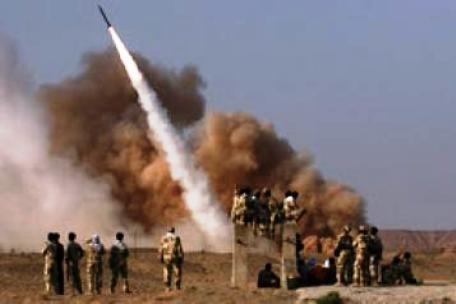Israel’s Threat, Iran's Response

In the current atmosphere, with the increasing threats of the Israeli officials against Iran, is Tel Aviv militarily capable of attacking Iran? The answer is crystal clear: yes. Israel is well equipped to attack nuclear and non-nuclear facilities across Iran, whether through conventional or non-conventional weapons. Israel possesses a significantly advanced missile technology and it can target Iran with its medium-range missiles. Technically speaking, an attack is feasible.
But the main point here is that any use of military forces is a means to obtain a goal and the action itself can never be considered the end. When it comes to analyzing approach of the West, instead of tactics and facilities, the goals should be discussed. The presumption that the West and Israel act rationally and, prior to taking any measure, they consider its loss and gain: the loss should exceed the gain, unless it is justified by a long-time target. What is the objective in this phase? What is presented by the West as justification for an attack is curbing Iran’s nuclear plan and preventing the country from achieving nuclear weapon.
Whether West has serious plans for attacking Iran or is just launching a psychological warfare is not clear now; but it is certain that they will not attack Iran, unless it is fully beneficial to them: military raid will be a strong blow to Iran, clarifying the point that the West and Israel are truly arch-enemies of Iran. Consequently, Iran will resort to a defensive posture and focuses on its military capabilities, i.e. investing more on the defensive facilities. Iran’s reaction will be problematic for the West and Israel.
Contrary to the scenarios sold these days, it does not seem that Iran would retaliate. Based on military logic, armed conflict between a nuclear country, here the West and Israel, and a non-nuclear country like Iran would not last in the long-run and in full-scale, as the target country cannot respond to likely nuclear attacks. Thus, in case of Israel’s attack on our nuclear facilities, we cannot strike back, even if we were well-equipped to do so.
Some experts argue that Israel’s attack on ’ran's nuclear facilities will be similar to those carried out against Syrian or Iraqi nuclear facilities, but there is one big difference : Iran’s nuclear facilities are scattered across the country. According to Western resources, there are at least twenty identified sites in which nuclear activities are carried out. This rules out the possibility of a rapid, inclusive attack to destroy all of the nuclear facilities; even if the air raids are carried out for several months. In addition, technically speaking, the West cannot target the underground nuclear facilities without the use of atomic bombs.
In short, there is only one choice: using an atomic bomb. For more than eight years, the West and the Israel have agonized over this scenario, just to reject it every time, as their final objective, namely terminating Iran’s nuclear program, cannot be met via any attacks. There is also the surreal scenario of all-out military operation inside Iran in order to access and destroy the nuclear facilities via ground routes. Nonetheless, the West will never put Iran in a position where it has no other choice but defending itself.

